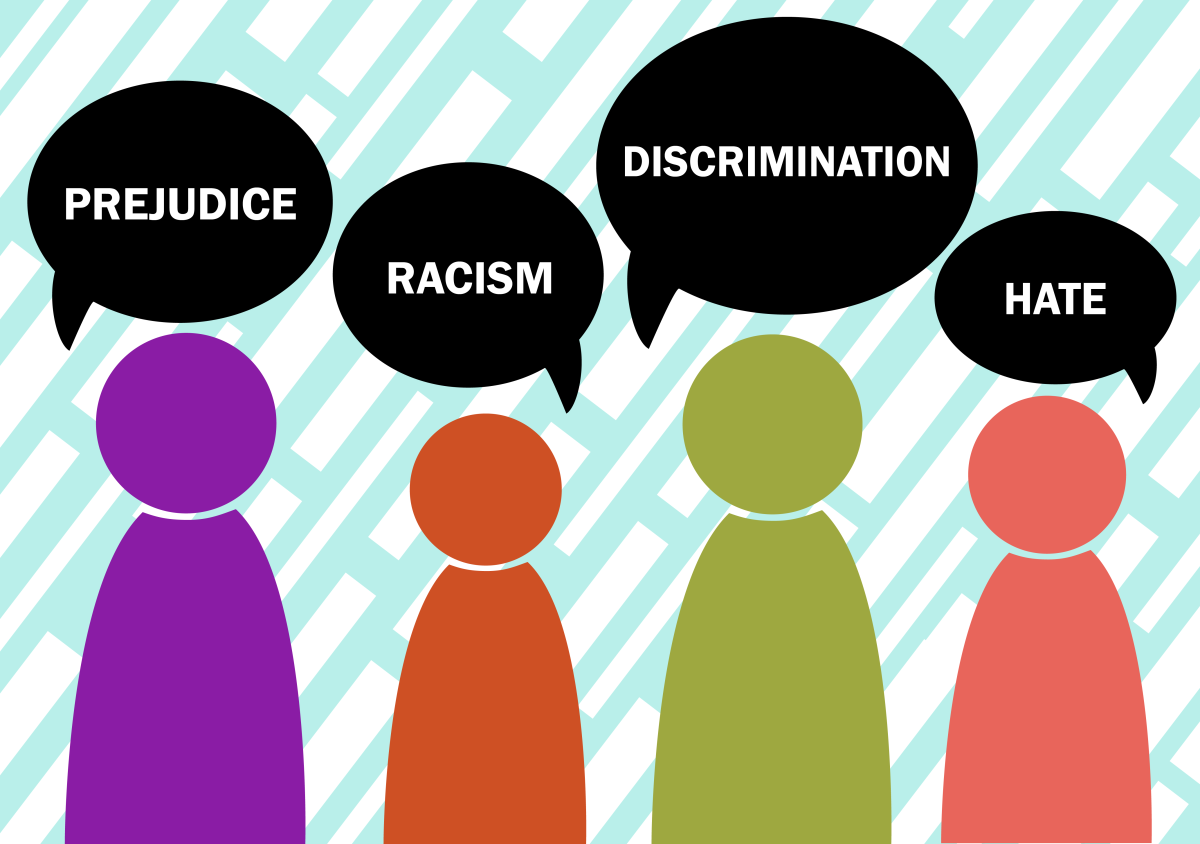“Can you tell if someone is black on the phone?”
The question was met with silence. No one wanted to speak up, to acknowledge the issue at hand.*
But Shalina Omar, a graduate student in English at NC State, didn’t shy away from the problem. She showed a clip from the 2018 movie “Sorry to Bother You,” in which a call center worker is encouraged to use his “white voice” on the phone. The answer to her question, of course, was yes.
This segment was a part of “Policy Speaks: Language Diversity in Practice,” a Diversity Education Week event hosted by the Language Diversity Ambassadors at NC State. Omar and three other graduate students discussed common conceptions of certain languages and the prevalence of language discrimination in media and daily life.
“When people think of equal protection under the law they often think [of] race/gender/disability status,” said Marie Bissell, one of the ambassadors and a graduate student in English over email after the event, “but since language can be a proxy for these types of discrimination it is important to clarify its place in the laws of our society.”
One example which demonstrated this was a public service announcement for the Fair Housing Act, which was shown during the event. In it, a man was shown calling the same apartment multiple times, looking to rent. Each time, he put on a different accent, posing as a black, Indian or Chinese man, and was turned away over and over until he finally used his “white voice,” which the woman on the other end was happy to oblige.
The Ambassadors discussed the origin of this sort of discrimination, which often stems from depictions of people of color in mass media. For example, Sofía Vergara’s Latin accent is portrayed as sexy, and Speedy Gonzales’ is lawless and wild. Characters with Southern accents, like Forrest Gump, are often meant to be viewed as unintelligent.
One quote by Rosina Lippi-Green, which was featured in the presentation, summed it up nicely: “[Language discrimination] is so commonly accepted, so widely perceived as appropriate, that it must be seen as the last widely open backdoor to discrimination.” Bissell cited examples such as English-only policies, which force employees to speak English while at work. In North Carolina, the Hispanic population has nearly quadrupled since 1990, making this a particularly pressing issue.
Another form of discrimination which can’t be seen, or heard, is audism, the belief that hearing people are inherently superior to the deaf. Alison Eggerth, another one of the presenting Ambassadors and a graduate student in English, spoke on this portion of the event.
“I don’t think it gets the recognition that it needs, because it’s not like people who use ASL (American Sign Language) are coming from other countries,” Eggerth said. “They’re here, in the United States. This is their home, but they still struggle finding accessibility.
Eggerth said that out of the 35,000 students at NC State, only 46 are registered with the Disability Resource Office as hard of hearing or otherwise in need of an interpreter. However, this doesn’t make their experiences any less valid.
“So much of our world is oriented towards hearing,” Eggerth said. “If the fire alarm went off, we’d hear it before we’d see it; if there was a gunshot behind us, we would hear it, whereas they’d rely on our expressions to know what’s going on… It’s just not innate to us to know how to communicate with someone who can’t hear us.”
Eggerth also mentioned that students who are hard of hearing are also not granted interpreters for extracurricular activities such as study groups or meetings with professors or advisers, which can be critical for their success.
According to the World Health Organization, over five percent of the world’s population has disabling hearing loss. Despite this, ASL was not recognized as a foreign language for credit by UNC system schools until 2007.
In order to combat the stereotyping and oppression of minorities even when we can’t see the color of their skin, we must be aware of invisible factors like language discrimination. “Policy Speaks: Language Diversity in Practice” was an illuminating seminar for students looking to know more about the way we perceive language in the modern day.
Diversity Education Week will be hosting over a dozen other events throughout the week through Saturday, Oct 20.
*Editor’s Note: a sentence in this article has been removed for accuracy.













